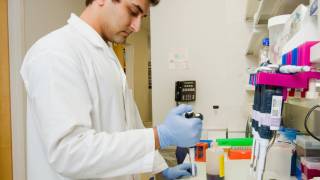$8.3 Million Awarded To Research HPV Prevention in People With HIV

Weill Cornell Medicine announced it has been awarded a 5-year, $8.3 million grant from the National Cancer Institute to investigate ways to prevent human papillomavirus (HPV)-related cancers in people living with human immunodeficiency virus (HIV) infection.
This announcement on February 14, 2020, says the Moffitt Cancer Center in Tampa, Florida and the Universidade de São Paulo in Brazil, will also participate in this research collaboration.
Together, investigators at these institutions comprise the “Multinational Partnership to Prevent HPV-Associated Cancer in People Living with HIV: Brazil, Mexico, Puerto Rico,” or PHAC-BMPR, which is part of the National Cancer Institute’s U.S.-Latin American-Caribbean Clinical Trials Network (ULACNet).
The ULACNet brings United States institutions together with their counterparts in low- and middle-income countries in Latin America and the Caribbean—where there are large populations of people with HIV/AIDS and HPV-related cancers—to conduct multidisciplinary clinical trials.
The grant will fund work designing and implementing three clinical trials at the University of São Paulo, the University of Puerto Rico and the Mexico National Institute of Public Health that focus on two forms of cancer that are associated with HPV, which is a sexually transmitted infection.
The 1st, oropharyngeal cancer, forms in the tissues of the oropharynx, located at the back of the mouth behind the oral cavity. In the USA, HPV is thought to cause 70 percent of oropharyngeal cancers for which there are no proven prevention modalities.
This clinical trial will evaluate whether an existing HPV vaccine (Gardasil 9) can prevent oral HPV infections in men living with HIV. The investigators hope this study will lead to a new use for the vaccine for oropharyngeal cancer.
The Gardasil 9 vaccine consists of HPV proteins, Types 6, 11, 16, 18, 31, 33, 45, 52, and 58, amorphous aluminum hydroxyphosphate sulfate, yeast protein, sodium chloride, L-histidine, Polysorbate 80, sodium borate, and water for injection.
The 2nd is cervical cancer, which occurs in cells of the cervix. This clinical trial will focus on rapid “point-of-care” screening tests that occur at the time and place of patient care, to help detect cervical premalignant lesions.
Both cancers are caused by HPV infections, with rates of those cancers significantly higher among people living with HIV.
The 3rd clinical trial will evaluate the effectiveness of a novel therapeutic HPV vaccine for treating pre-malignant lesions of the cervix. Currently, these lesions are treated with surgical procedures.
New solutions for the prevention, screening and treatment challenges faced by these populations are urgently needed, said this press release.
“What we learn and discover through this collaboration will be very beneficial for the Latin American and Caribbean populations that we’re studying, but it will also translate to a much broader area,” said co-principal investigator Dr. Timothy Wilkin, an associate professor of medicine in the Division of Infectious Diseases at Weill Cornell Medicine and infectious disease specialist at NewYork-Presbyterian/Weill Cornell Medical Center.
“Cervical cancer is the leading cause of cancer death in women living with HIV in Latin American and Caribbean countries, despite being preventable with proper screening and vaccination.”
“The results of our clinical trials could help form new methods and interventions that can decrease the incidence of cervical cancer in these countries, and around the globe,” concluded Dr. Wilkin.
HPV testing and vaccine development news are published by Vax-Before-Cancer.
Our Trust Standards: Medical Advisory Committee
























